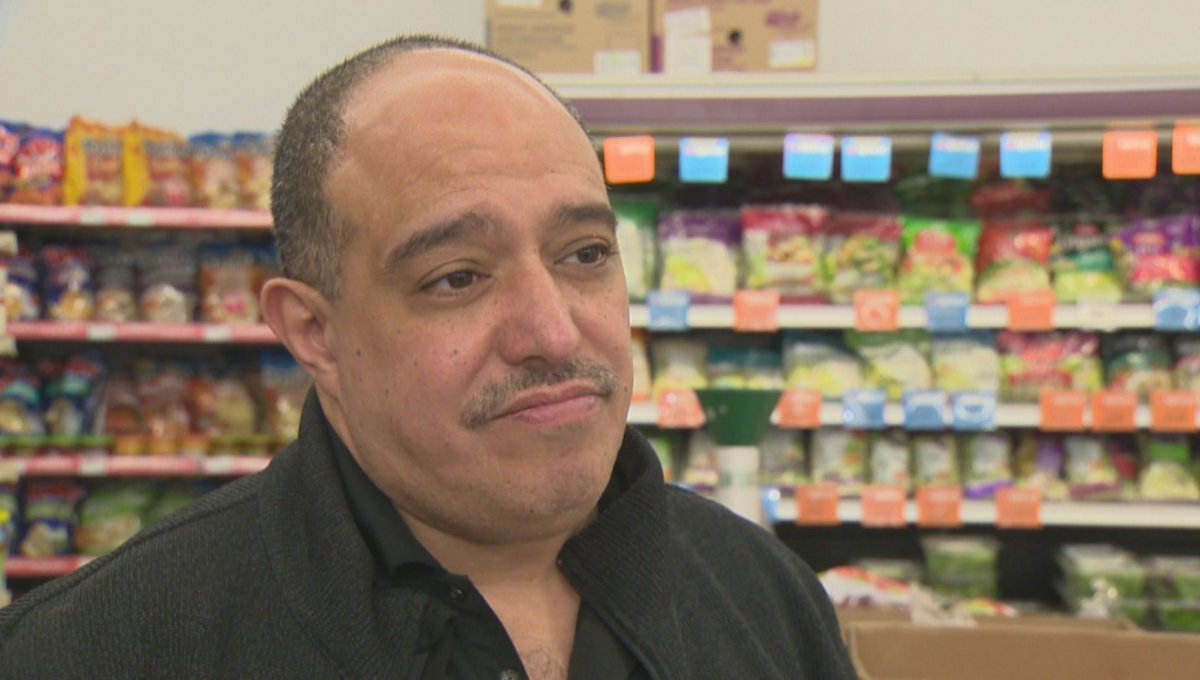A new national study says that while Canadians are buying the same amount of food as they did last fall, they’re trying to spend less — and anxiety around food affordability has surged nationwide.
The study, the Spring 2025 Canadian Food Sentiment Index, is an initiative of Dalhousie University’s agri-food analytics lab, and is intended as a snapshot of people’s attitudes toward food prices and grocery shopping behaviours.
According to the survey of 2,994 Canadians, stress around affordability has ballooned to 28.5 per cent — almost 10 percentage points higher than the previous edition of the study in fall of last year.
Food professor Sylvain Charlebois told 680 CJOB’s The Start that people are shopping around more to get deals.
“People are looking at different stores and they are looking at buying bulk way more than before, stretching their dollars as much as possible,” he said.
Some sections of the grocery store that are feeling the pinch, he said, are those that offer fresh food — something many Canadians might be eschewing to save money.
“That’s the one thing that concerns us — if you are spending less, you may be making some nutritional compromises, and that’s certainly not a good thing, for sure.”
The spring study has also shown that Canadian shoppers — in particular younger Canadians — are choosing to buy more local products in the wake of tariffs and threats from U.S. President Donald Trump.
“People are starting to see local as a priority now,” Charlebois said.
“Because of what’s going on with tariffs and Donald Trump, I think people are walking into the grocery store being concerned about America and of course the pressure that Canada is under right now.”
Munther Zeid, the owner of the ‘Food Fare’ grocery store chain in Winnipeg.
Michael Draven / Global News
Munther Zeid, owner of Winnipeg’s Food Fare grocery chain, says the shift to local products is something he’s seeing firsthand.
“The American products are still selling — not as quickly, but they’re still selling…but the ‘shop local’, ‘buy local’ (trend) is definitely on the rise,” he said.
Locally-produced grocery items like Harvest Bakery bread and Santorini yogurt, said Zeid, are flying off shelves.
However, he says he’s also noticing price increases for many Canadian goods, which could affect shoppers’ long-term buying habits.
“The one bad thing we’ve noticed is a lot of the Canadian products are starting to go up in price by 10 cents here, 20 cents there.
“It’s a minimal increase but it seems to be going up a little bit.”
Vince Barletta of Harvest Manitoba told The Start it’s unsurprising people are looking to save their dollars. He’s seen the effects of food insecurity on a daily basis at the food bank.
“For, really, tens of thousands of Manitoba families, their incomes have not kept pace, have not kept up, and they’re making difficult choices,” Barletta said.
“Sadly, one of those difficult choices is what goes on the kitchen table, and that’s resulting in Manitoba’s continued record-high demand for food banks.”
Fresh food, he said, remains in high demand, as those items take the biggest bite out of people’s wallets. To help meet the demand, Manitoba Egg Farmers has doubled its donation of fresh eggs to the food bank.
“”It really starts with our prodcuers, our agri-food community. We’re so fortunate here in Manitoba to have that base of support from our agricultural producers.
“Whether that’s eggs, whether that’s meat, vegetables, fruit, those are some of the big costs, so when we can get eggs into people’s food bank packages for the month, it’s one of the more popular items that we distribute.”




